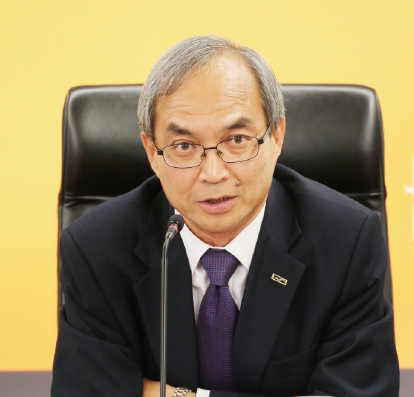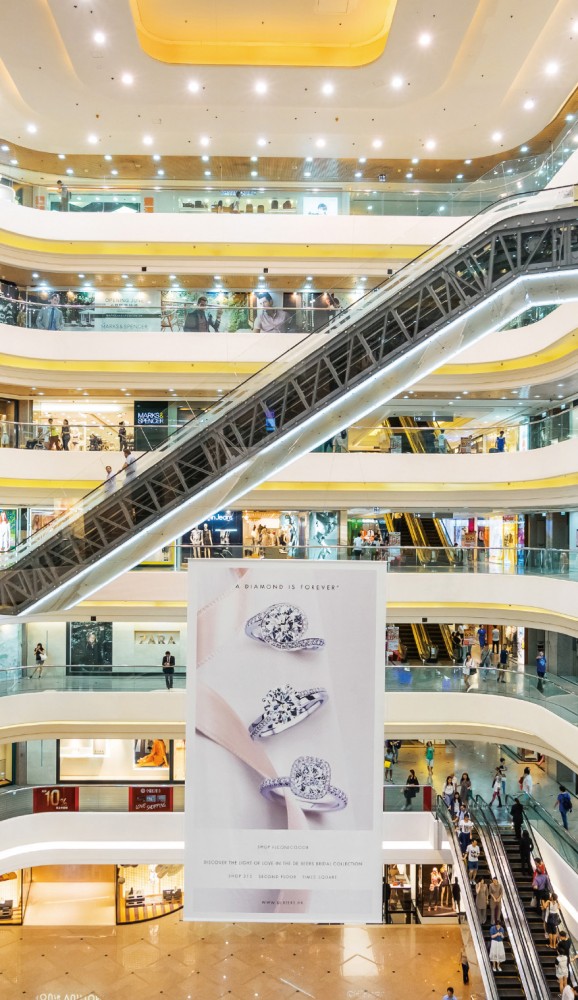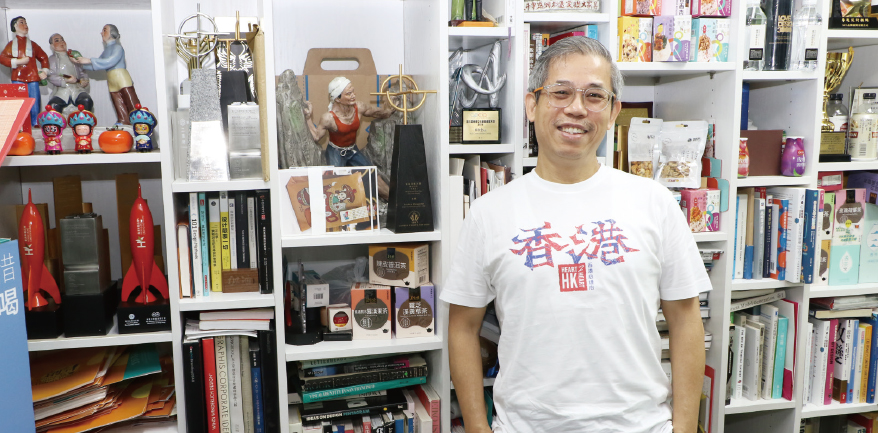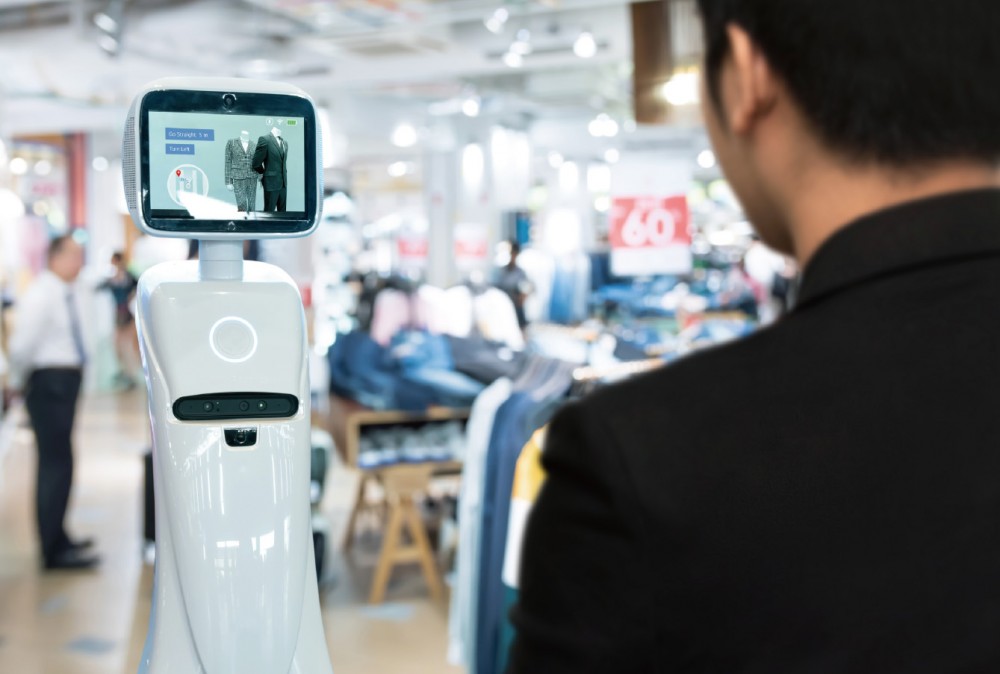Harsh realities of the Sino-US trade war, social tension and the more recent COVID-19 pandemic have put extra pressure on Hong Kong’s sluggish economy. The travel and tourism industry grinds to a halt; retail, catering and services are hard hit. In this time of hardship, how can brand names and businesses save themselves and turn crisis into opportunity?

Nicholas Kwan: Businesses Seek Changes Amid Pandemic to Cope with Consumption Downturn
 The Export Index for 1Q20 announced earlier by the Hong Kong Trade Development Council (HKTDC) was just 16. This marks the lowest reading for the Index since its introduction in 2006, an indication of high degree of pessimism across all industries about Hong Kong’s export prospects in the coming months. Nicholas Kwan, Director of Research of the HKTDC, who has been following the movements of the index over the years, said that the survey for the index was conducted in February this year. The onset of the COVID-19 pandemic in Hong Kong at that time, combined with the China-US trade war and the public incidents in Hong Kong, further depressed confidence in recovery.
The Export Index for 1Q20 announced earlier by the Hong Kong Trade Development Council (HKTDC) was just 16. This marks the lowest reading for the Index since its introduction in 2006, an indication of high degree of pessimism across all industries about Hong Kong’s export prospects in the coming months. Nicholas Kwan, Director of Research of the HKTDC, who has been following the movements of the index over the years, said that the survey for the index was conducted in February this year. The onset of the COVID-19 pandemic in Hong Kong at that time, combined with the China-US trade war and the public incidents in Hong Kong, further depressed confidence in recovery.
Decline in jewellery demand amid social distancing
Kwan said that the jewellery industry is most pessimistic about export prospects. It could be because the jewellery industry, which was just slightly affected by the China-US trade war, saw a small increase even though various industries as a whole saw a decline in exports last year. Therefore, when the pandemic broke out, jewellery exports fell sharply and jewellery manufacturers naturally felt a bigger impact in contrast.
“There is a reason for the sharp fall in demand for jewellery amid the pandemic. Consumer demand for jewellery and accessories will decrease when members of the public go out less often, which will greatly affect exports.” Kwan added that the demand for products will only pick up again when the pandemic starts to ease.
Global pandemic has a far-reaching impact
Looking back at the SARS experience, Kwan said that sales in many industries rebounded within a short period of time as the pandemic was mainly concentrated in Asia and did not last long. However, the impact of the COVID-19 pandemic is much greater in scope and depth than that of SARS.
“Industries that have always focused on the European and American markets will likely be affected in a far-reaching manner and recovery will take longer.” Kwan stressed that markets across the world are all affected, causing many businesses to scale down or even close down. Moreover, many tourism- and retail-related businesses have taken measures such as wage cuts, unpaid leave and layoffs to alleviate operating pressure. However, if the COVID-19 pandemic lasts for more than six months or even a year, more businesses will have to close down, thus exacerbating unemployment.
Support from all parties needed while online platform rolled out
Kwan believes that support from the Government and the business community is especially important to help businesses get through the tough times. He also said that public institutions and quasi-government corporations such as the HKTDC and the Hong Kong Productivity Council (HKPC) offer various support schemes to work with businesses to tide over the hard times.
Kwan added that the HKTDC has recently launched the Spring Virtual Expo to deal with the cancellations or postponements of large-scale exhibitions and conventions. “Online expos are set to become a new trend for companies looking for business partners and expanding their sales networks.”
With regard to the export or sales markets, Kwan said that as the pandemic in Europe and the US could take a long time to stabilise, manufacturers should consider opening up new avenues for business in regions less affected by the pandemic and where purchasing power is rising, such as the emerging markets in the Greater Bay Area, Asia and South America. “For the medium and long term, I hope that after the pandemic eases, more countries and regions will minimize the current restrictions on import and export trade to help revive the global economy and various industries as soon as possible.”

Baniel Cheung: COVID-19 Presents an Opportunity to Change Consumption Habit in Hong Kong
 17 years after the SARS outbreak, Hong Kong and the rest of the world are confronted with another epidemic. Industries heavily reliant on mainland visitors hit the bottom as COVID-19 directly dampens local consumer confidence. It is a crippling double blow.
17 years after the SARS outbreak, Hong Kong and the rest of the world are confronted with another epidemic. Industries heavily reliant on mainland visitors hit the bottom as COVID-19 directly dampens local consumer confidence. It is a crippling double blow.
Epidemic only a proximate cause of retail weakness
Baniel Cheung, Adjunct Assistant Professor of Faculty of Business and Economics of the University of Hong Kong, points out that while the epidemic is a proximate cause of retail weakness, the remote cause is “unnatural” social and economic development. “To a certain extent, the considerable size of the retail sector in recent years is resulted by advantaged policy and bias.”
Cheung says frankly that Hong Kong cannot survive merely on certain industries. That would worsen wealth disparity and in the long run create headwind for healthy economic growth.
Seize opportunity to reform business models
With the epidemic posing serious threat and the government urging the public to stay home, consumer sentiment has dropped significantly. Consumption habit is also taking change. Many shoppers are switching from conventional brick-and-mortar stores to online shops. Internet marketing seems to be a survival route for retailers.
 Traditionally, Hong Kong consumers always spend time in shopping malls on public holidays, and they are accustomed to shopping in brick-and-mortar stores. Cheung says now is the best time to change this consumption model. Once a habit is developed, people will continue to shop online in the future. He continues to say that comparing to large corporations, SMEs are more versatile in their business models and thus more flexible to make changes as market conditions require. On the contrary, it is hard for large corporations to do likewise because they have very established management frameworks and business models. Changes tend to take a long time.
Traditionally, Hong Kong consumers always spend time in shopping malls on public holidays, and they are accustomed to shopping in brick-and-mortar stores. Cheung says now is the best time to change this consumption model. Once a habit is developed, people will continue to shop online in the future. He continues to say that comparing to large corporations, SMEs are more versatile in their business models and thus more flexible to make changes as market conditions require. On the contrary, it is hard for large corporations to do likewise because they have very established management frameworks and business models. Changes tend to take a long time.
Review current state of operation and respond with prompt transformation
As the general consumption model changes, will there be a big shuffle in traditional industries? Cheung said, “A big shuffle is unlikely, as that means complete uprooting which is not viable in the Hong Kong market.” For this reason, the key to business survival lies in timely transformation.
Cheung raises three points that businesses should consider during the transformation process. “Firstly, should they continue with the existing operation model? Secondly, is it possible to make some changes under the existing operation model, such as further amalgamation of online and offline sales and offering a wider choice of products? Thirdly, can the existing operation model ensure sustainable competitiveness?” He stresses that when a business cannot realize expected return, one has to consider if the operation should continue.
Although we are experiencing an extremely challenging time for the local economy, Cheung says frankly that he hopes this crisis will present an opportunity to change Hong Kong’s economic structure so different sectors have their own space for growth. It would also enable businesses to rethink and develop business models to keep abreast of the times. Such evolution will benefit not only the retail industry, but the long-term sustainable economic growth of Hong Kong as a whole.

Charles Ng: Innovate and Change to Overcome Business Downturn
 Charles Ng, Founder and Chief Brand Consultant of Maxi Communications Limited, believes that Hong Kong is set to fall into a recession after a series of shocks. In addition, economic activities across the world have recently ground to a halt amid the global spread of the COVID-19 pandemic, making it worse for the Hong Kong economy.
Charles Ng, Founder and Chief Brand Consultant of Maxi Communications Limited, believes that Hong Kong is set to fall into a recession after a series of shocks. In addition, economic activities across the world have recently ground to a halt amid the global spread of the COVID-19 pandemic, making it worse for the Hong Kong economy.
Different approach is needed for business operation
How can SMEs or start-ups overcome the current adversity? “In the short term, they can only rely on the Government’s Anti-epidemic Fund. In the long term, all industries should review their business models.
Ng said that past formulas for success are no longer useful in today’s business environment, “The business environment and commercial development in Hong Kong are very mature, so it is not easy for entrepreneurs to get in as the barriers to entry are getting increasingly higher. “The F&B industry is case in point. In the past, entrepreneurs could sell fish balls on carts on the street, but restaurants now have to apply for different licences and pass multiple tests before they can open for business.
Seek breakthroughs amid crisis
Companies must therefore be equipped with strong capital to create new value in the industry they are in, “In the past, wherever there are people, there is business. But now companies must innovate. For example, the retail industry’s development of online shopping services, restaurants’ switch to take-out services, etc. Businesses must find more solutions to excel if they are to operate sustainably.”
Ng believes that companies offering solutions to various problems will recover the fastest post pandemic, “The most obvious are the health and hygiene-related industries, because people around the world will be more aware of disease prevention and health conscious after the pandemic experience, thus creating business opportunities for relevant industries.”
In addition, businesses that can deal with social, economic, health and life issues will be better equipped to gain a footing in future business environments if they can come up with breakthrough solutions. “Take our company as an example. We have designed T-shirts with different styles and fonts to spread cheer to affected regions and countries around the world.” Ng said that the first batch of T-shirts are designed to express our regards to people across 50 countries or regions.
Starting anew through transformation
As for businesses that are still struggling in the industry they are in, Ng believes that instead of being nostalgic about the good old days, they should re-establish their brand and start a new chapter for themselves. He said that businesses can take reference from the seven R’s for brand success to look for the most suitable transformation according to their industry structure, “Through the seven R’s including Redesign, Revitalization, Revamp, Reconfiguration, Rejuvenation, Repositioning, and Reinventing, they can review the industry development trends in order to keep pace with the times and stand out from the competition.”
“It’s like an old herbal tea shop launching bottled herbal tea or a medicinal oil company developing various scented medicinal oils. Willingness to ‘change’ is a necessity for businesses in an uncertain economic environment.” Ng stressed that with all industries in Hong Kong now at a critical juncture, businesses must explore their own strengths and dare to change before they can hope to start afresh.




